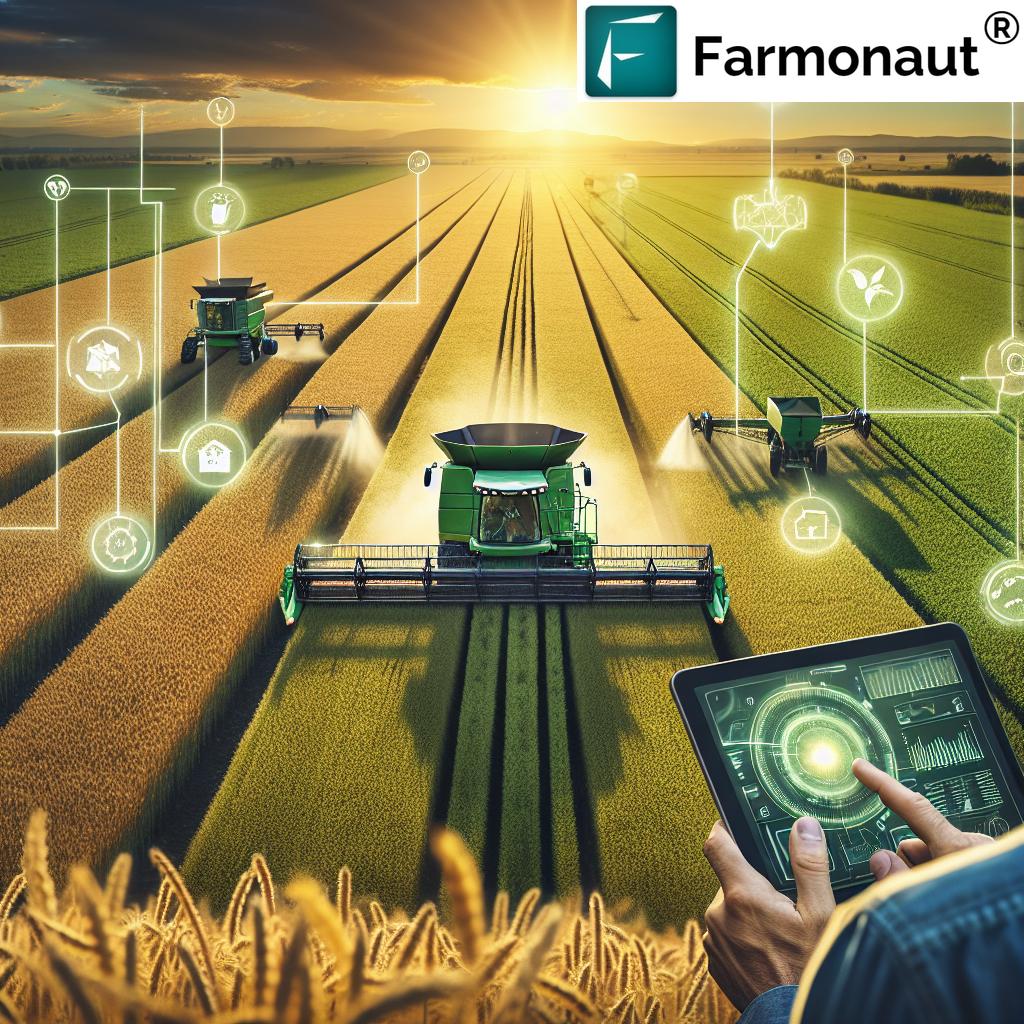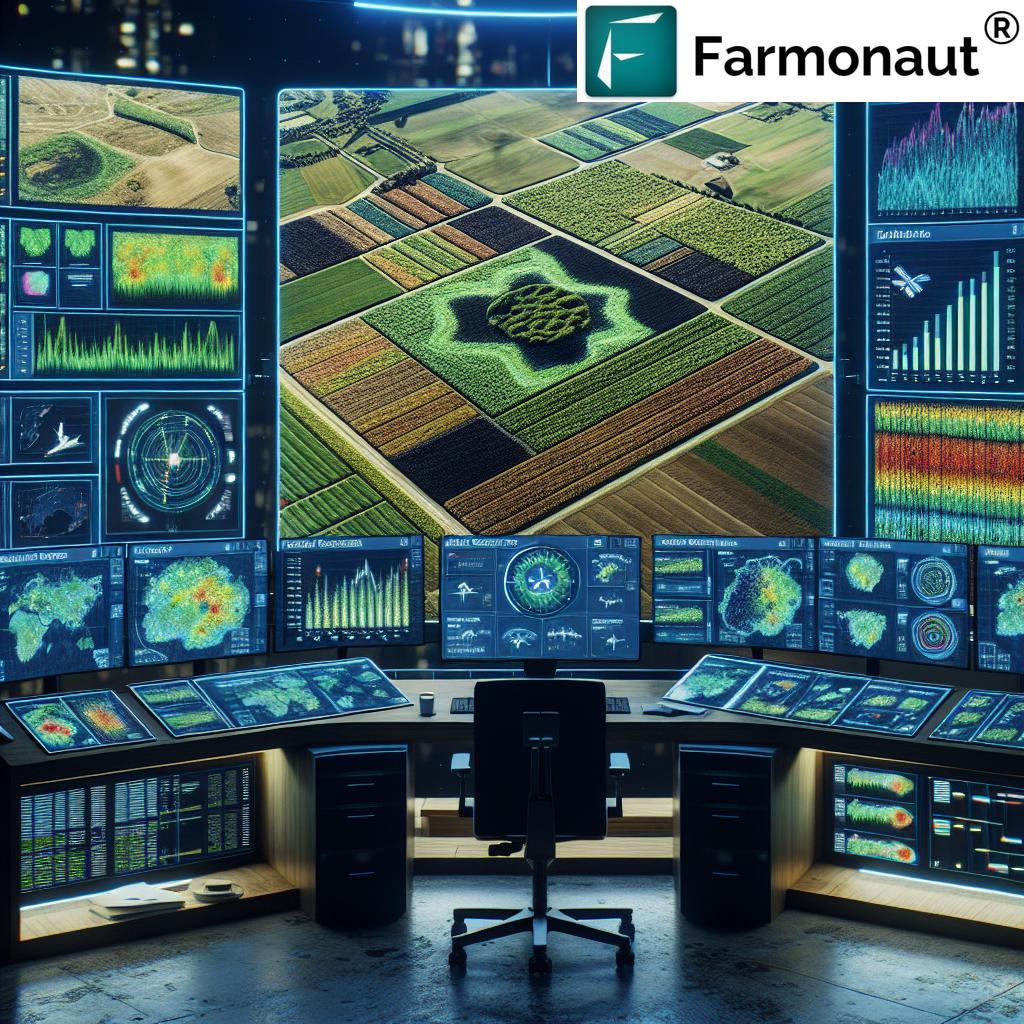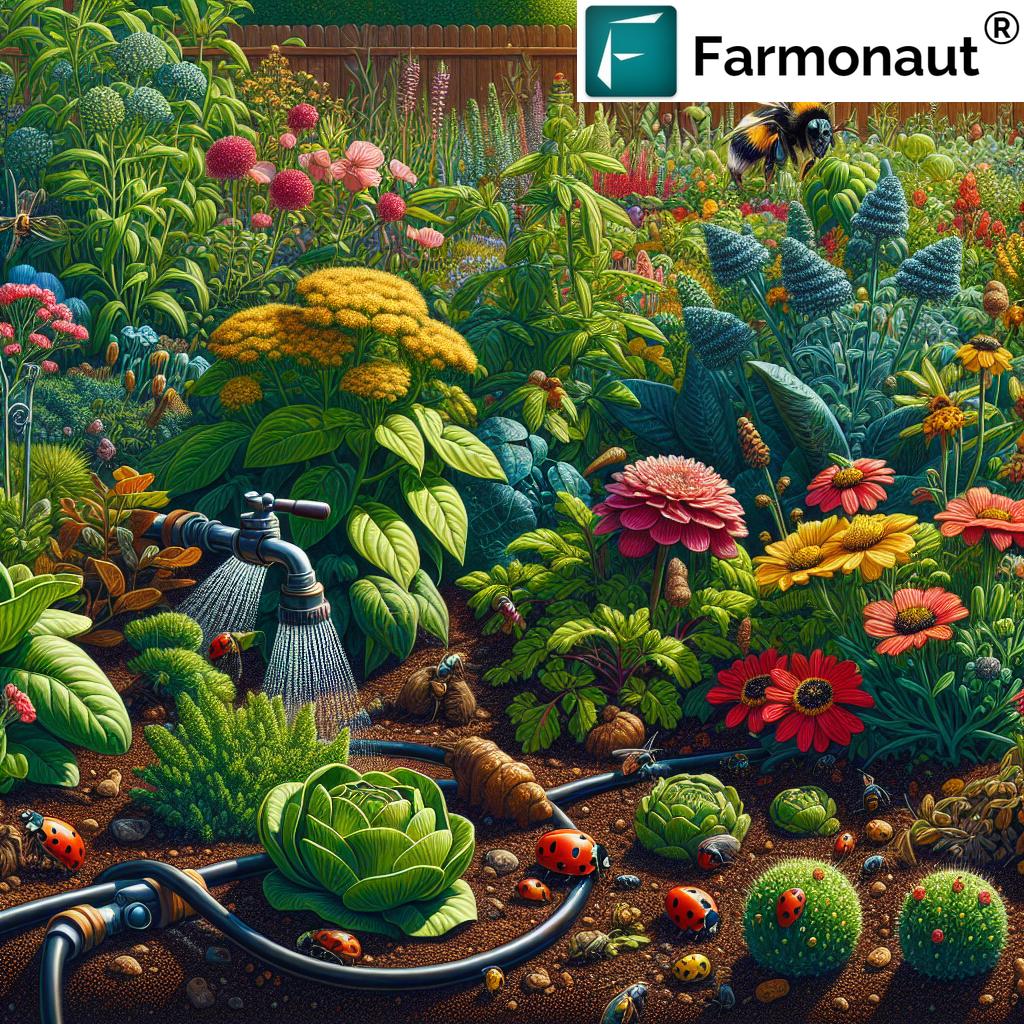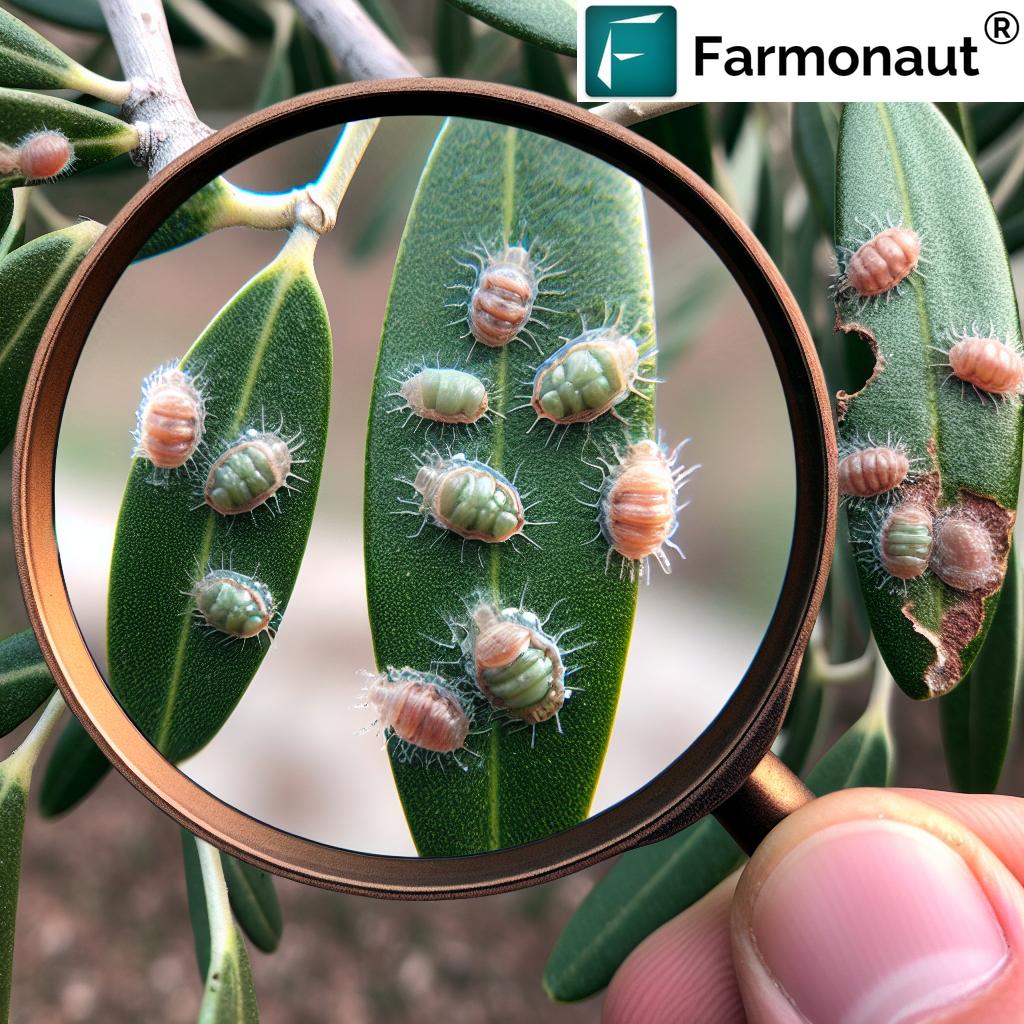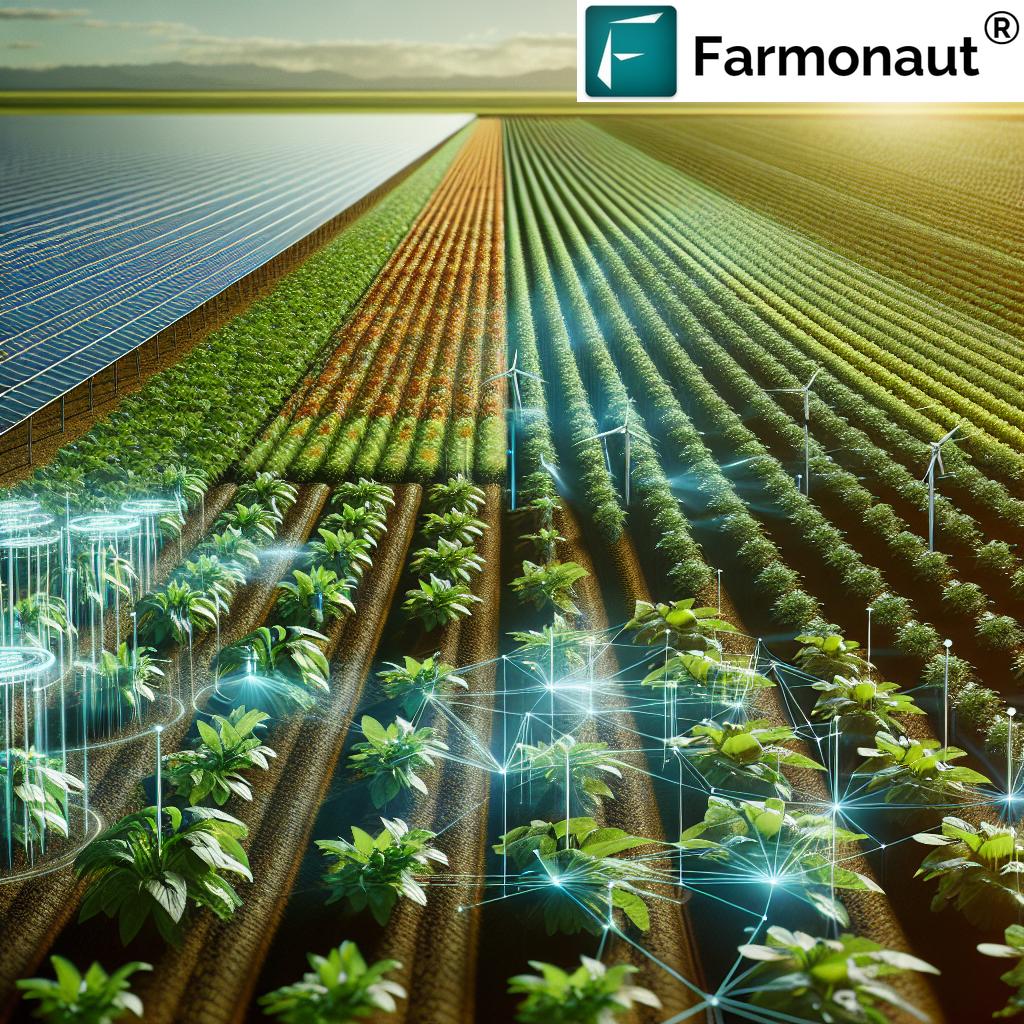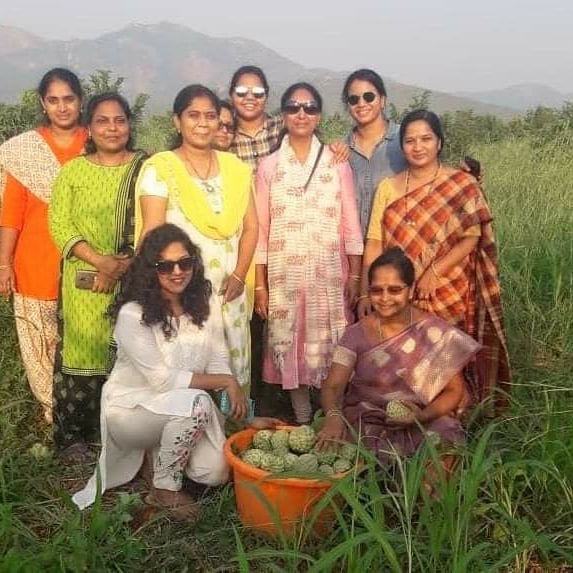
Organic Farming Success: Viswamatha Farms’ Journey with Custard Apples and Precision Agriculture
In the ever-evolving world of agriculture, we’re witnessing a remarkable convergence of traditional wisdom and cutting-edge technology. Today, we’re excited to share the inspiring story of Viswamatha Farms, a shining example of how organic farming practices and precision agriculture can work hand in hand to create a sustainable and productive future for farming.
The Sweet Success of Custard Apples
Viswamatha Farms recently celebrated a significant milestone in their agricultural journey – a bountiful harvest of custard apples. This achievement is not just about quantity; it’s a testament to their commitment to quality and sustainability. Let’s delve into the details of their success:
- A impressive harvest of 100 kg of custard apples at a time
- 100% organic production, showcasing their dedication to chemical-free farming
- A vision to transform their entire horticulture product line to organic by 2021
This success story is more than just numbers; it’s about a farm that’s embracing the future while respecting the earth. At Farmonaut, we’re thrilled to see farmers like those at Viswamatha Farms leading the charge in sustainable agriculture.
The Power of Organic Farming
Organic farming is at the heart of Viswamatha Farms’ philosophy. But what exactly does this mean, and why is it so important?
Organic farming is a method of crop and livestock production that involves much more than simply avoiding pesticides and synthetic fertilizers. It’s a holistic approach to farming that considers the entire ecosystem of the farm. Here are some key principles of organic farming that Viswamatha Farms likely adheres to:
- Soil Health: Organic farmers focus on building and maintaining healthy soil through practices like crop rotation, composting, and cover cropping. Healthy soil leads to healthy plants and, ultimately, more nutritious food.
- Biodiversity: By avoiding monocultures and encouraging a diverse range of plants and animals on the farm, organic farmers create a more resilient ecosystem that can better withstand pests and diseases.
- Natural Pest Control: Instead of relying on chemical pesticides, organic farmers use biological and cultural practices to manage pests. This might include introducing beneficial insects, using trap crops, or implementing strategic planting schedules.
- Water Conservation: Many organic farming practices, such as mulching and building soil organic matter, help to conserve water by improving soil structure and water retention.
- Prohibition of GMOs: Organic farming does not allow the use of genetically modified organisms (GMOs), focusing instead on traditional breeding methods and natural plant varieties.
By committing to these principles, Viswamatha Farms is not only producing high-quality custard apples but also contributing to the long-term health of their land and the surrounding environment.
The Role of Precision Farming in Organic Agriculture
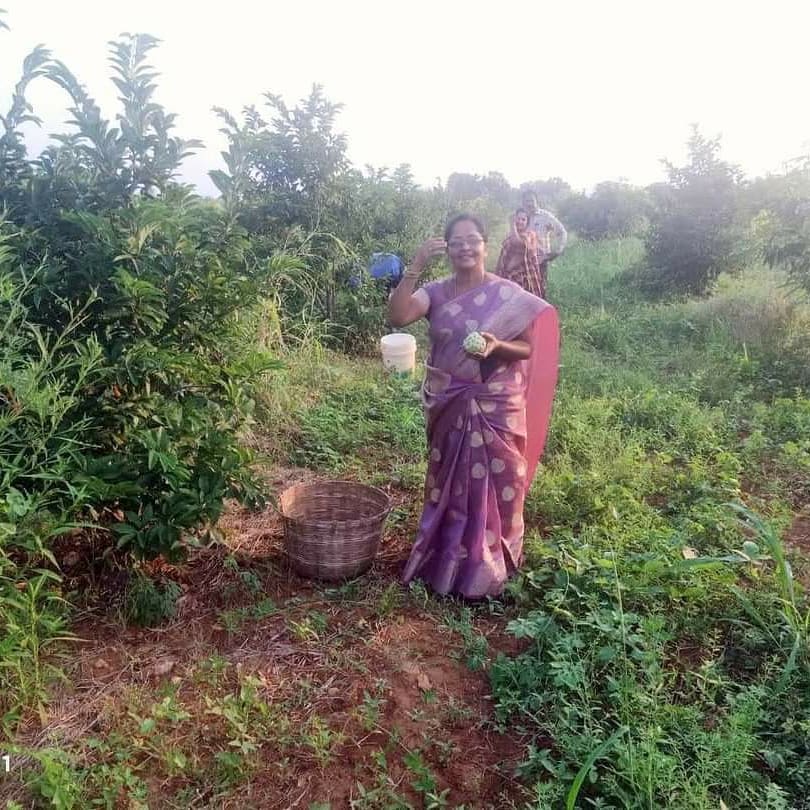
While organic farming is often associated with traditional methods, forward-thinking farms like Viswamatha are proving that it can be complemented by modern technology. This is where precision farming comes into play.
Precision farming, also known as precision agriculture or smart farming, is an approach to farm management that uses information technology and a wide array of items such as GPS guidance, control systems, sensors, robotics, drones, autonomous vehicles, variable rate technology, GPS-based soil sampling, automated hardware, telematics, and software.
Here’s how precision farming is enhancing organic practices at Viswamatha Farms:
- Targeted Resource Application: By using precision farming data, the farm can apply organic fertilizers and natural pest control solutions exactly where and when they’re needed, minimizing waste and maximizing efficiency.
- Soil Health Monitoring: Advanced sensors and satellite imagery can provide detailed information about soil health, allowing farmers to make informed decisions about crop rotation and soil amendment strategies.
- Water Management: Precision irrigation systems can deliver water precisely where it’s needed, conserving this precious resource while ensuring optimal plant growth.
- Yield Prediction: By analyzing data from previous seasons and current growing conditions, farmers can more accurately predict yields, helping with harvest planning and market forecasting.
- Climate Adaptation: With access to detailed weather data and forecasts, farmers can make proactive decisions to protect their crops from extreme weather events.
At Farmonaut, we’re proud to be at the forefront of this technological revolution in agriculture. Our satellite-based farm management solutions are helping organic farmers like those at Viswamatha Farms to take their operations to the next level.
The Farmonaut Advantage
As we celebrate the success of Viswamatha Farms, it’s worth taking a closer look at how technology like ours at Farmonaut is making a difference in the world of organic and precision farming.
| Feature | Farmonaut Satellite System | Drone-based Monitoring | IoT-based Monitoring |
|---|---|---|---|
| Coverage Area | Large (entire farms at once) | Limited (requires multiple flights) | Limited (depends on sensor placement) |
| Frequency of Data | Regular (every few days) | As needed (requires manual flights) | Continuous (but localized) |
| Initial Setup Cost | Low | High (drone purchase required) | High (multiple sensors needed) |
| Maintenance | Minimal | Regular (drone maintenance) | Regular (sensor maintenance) |
| Ease of Use | High (cloud-based platform) | Moderate (requires pilot skills) | Moderate (technical setup required) |
| Weather Dependency | Low (can penetrate clouds) | High (affected by wind, rain) | Low (but sensors can be damaged) |
| Data Analysis | Advanced (AI-powered insights) | Varies (depends on software) | Detailed (but localized) |
As you can see, while each system has its strengths, the Farmonaut Satellite System offers a unique combination of wide coverage, regular data updates, and advanced analysis, all with minimal setup and maintenance required. This makes it an ideal choice for farms of all sizes looking to implement precision farming techniques.
The Journey to 100% Organic
Viswamatha Farms’ goal to achieve 100% organic horticulture production by 2021 is ambitious and inspiring. This transition requires careful planning, dedication, and often, a significant learning curve. Here’s what this journey might entail:
- Soil Rehabilitation: The first step in transitioning to organic farming is often to restore soil health. This might involve adding organic matter, introducing beneficial microorganisms, and allowing the soil to recover from any chemical residues.
- Natural Pest Management: Developing effective strategies for pest control without synthetic pesticides is crucial. This might include introducing beneficial insects, using pheromone traps, and implementing crop rotation to break pest cycles.
- Organic Fertilization: Learning to meet plant nutrient needs through organic means such as compost, green manures, and natural mineral sources is a key part of the organic transition.
- Water Management: Implementing water conservation techniques and ensuring water sources are free from contamination are important aspects of organic farming.
- Certification Process: To be officially recognized as organic, farms must go through a certification process, which includes a transition period where organic practices are followed but the produce can’t yet be sold as organic.
- Continuous Learning: Organic farming requires a deep understanding of natural systems. Farmers often need to continuously educate themselves about new organic techniques and technologies.
This transition can be challenging, but the rewards – both for the environment and for the quality of produce – are significant. By leveraging precision farming data, Viswamatha Farms is likely able to make this transition more smoothly and efficiently.
The Impact of Organic Custard Apple Farming
Custard apples, also known as sugar apples or sweetsops, are not just delicious; they’re also packed with nutritional benefits. By growing these fruits organically, Viswamatha Farms is providing a product that’s not only healthier for consumers but also better for the environment. Here’s why organic custard apples are so impactful:
- Nutritional Value: Custard apples are rich in vitamin C, B-complex vitamins, and minerals like magnesium and potassium. Organic farming methods can often lead to produce with higher nutrient density.
- Environmental Benefits: Organic farming practices help to preserve biodiversity, improve soil health, and reduce water pollution from chemical runoff.
- Pest Resistance: Over time, organically grown plants often develop better natural resistance to pests and diseases, leading to more resilient crops.
- Economic Impact: Organic produce often commands a premium price, potentially providing better returns for farmers.
- Health Benefits: By avoiding synthetic pesticides and fertilizers, organic custard apples are free from potentially harmful chemical residues.
The success of Viswamatha Farms in organic custard apple production serves as an inspiration and a model for other farmers considering the transition to organic methods.
Precision Farming: A Closer Look
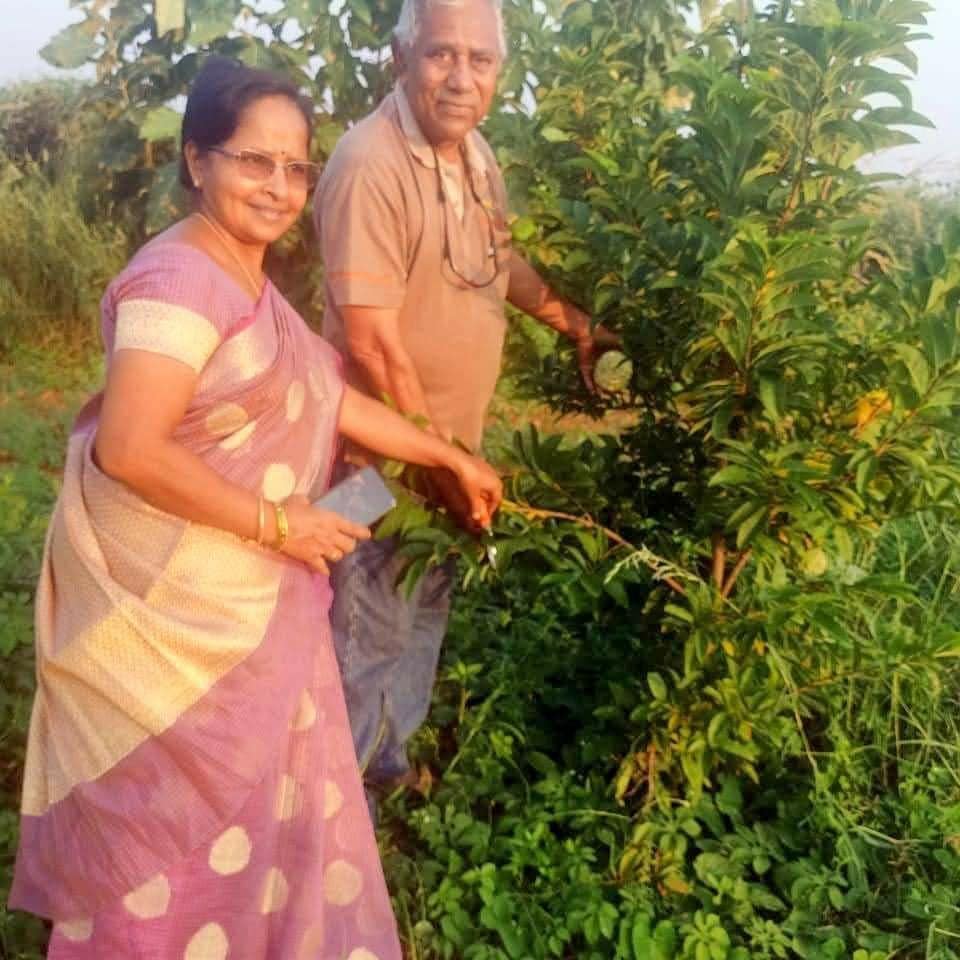
Now that we’ve explored the organic aspect of Viswamatha Farms’ success, let’s delve deeper into how precision farming is revolutionizing agriculture, even in organic settings.
Precision agriculture is all about doing the right thing, in the right place, at the right time, and in the right way. It’s a management strategy that gathers, processes, and analyzes temporal, spatial, and individual data and combines it with other information to support management decisions according to estimated variability for improved resource use efficiency, productivity, quality, profitability, and sustainability of agricultural production.
Here are some key components of precision farming that farms like Viswamatha might be utilizing:
- Satellite Imagery: High-resolution satellite images provide a bird’s-eye view of the entire farm, allowing farmers to spot issues that might not be visible from the ground. At Farmonaut, our satellite-based crop health monitoring system provides farmers with valuable insights into vegetation health, soil moisture levels, and other critical metrics. Learn more about our satellite services here.
- GPS Guidance: GPS-guided tractors and other farm equipment can operate with centimeter-level accuracy, reducing overlap and optimizing the use of inputs like seeds and organic fertilizers.
- Soil Sampling and Mapping: Detailed soil maps created through precision sampling help farmers understand the variability in their fields and make targeted decisions about soil amendments and crop placement.
- Variable Rate Technology (VRT): VRT allows farmers to vary the rate of application of seeds, fertilizers, and other inputs across a field, ensuring that each area receives exactly what it needs.
- Yield Monitoring: Yield monitors on harvesting equipment provide detailed data about crop performance, allowing farmers to identify areas of the field that may need attention.
- Weather Stations: On-farm weather stations provide hyperlocal weather data, helping farmers make timely decisions about planting, irrigation, and harvest.
By integrating these precision farming techniques with organic practices, farms like Viswamatha are able to maximize their yields while minimizing their environmental impact. It’s a win-win situation that represents the future of sustainable agriculture.
The Role of Data in Modern Farming
At the heart of precision farming is data. The ability to collect, analyze, and act on vast amounts of agricultural data is what sets modern farming apart from traditional methods. Here’s how data is transforming agriculture:
- Predictive Analytics: By analyzing historical data alongside current conditions, farmers can make more accurate predictions about crop yields, pest outbreaks, and optimal harvest times.
- Resource Optimization: Data-driven insights allow farmers to use resources like water, organic fertilizers, and natural pest control solutions more efficiently, reducing waste and improving sustainability.
- Risk Management: Access to real-time and forecasted data helps farmers mitigate risks associated with weather, pests, and market fluctuations.
- Traceability: Detailed data collection throughout the growing process enhances traceability, which is increasingly important for organic certification and consumer trust.
- Continuous Improvement: By analyzing data from season to season, farmers can continuously refine their practices and improve their yields.
At Farmonaut, we’re committed to making this wealth of data accessible and actionable for farmers of all sizes. Our API allows developers and businesses to integrate our satellite and weather data into their own systems, further expanding the possibilities of data-driven agriculture.
The Future of Farming: Organic Meets High-Tech
The success of Viswamatha Farms in combining organic practices with precision farming data points to an exciting future for agriculture. As we look ahead, we can anticipate several trends that will shape the future of farming:
- AI and Machine Learning: Advanced algorithms will increasingly be used to analyze farm data and provide even more accurate and timely recommendations to farmers.
- Internet of Things (IoT) in Agriculture: The proliferation of low-cost sensors will allow for even more detailed monitoring of crop and soil conditions.
- Robotics and Automation: Autonomous vehicles and robotic systems will take on more tasks on the farm, from planting to harvesting.
- Vertical and Urban Farming: As technology advances, we’ll see more food production moving into urban areas and indoor environments.
- Blockchain in Agriculture: Blockchain technology will enhance traceability and transparency in the food supply chain, which is particularly important for organic produce.
As these technologies evolve, they will become increasingly accessible to farmers of all sizes, democratizing access to precision agriculture tools. At Farmonaut, we’re committed to staying at the forefront of these developments and making them available to our users.
How Farmonaut is Empowering Organic Farmers
While Viswamatha Farms’ story is inspiring, it’s just one example of how precision farming tools can enhance organic agriculture. At Farmonaut, we’re proud to be part of this revolution, offering a suite of tools designed to support farmers in their journey towards more sustainable and productive farming practices.
Here’s how our services are making a difference:
- Satellite-Based Crop Monitoring: Our advanced satellite imagery provides farmers with regular updates on crop health, allowing them to spot issues early and take corrective action. This is particularly valuable for organic farmers who need to be proactive in pest and disease management.
- AI-Powered Insights: Our Jeevn AI advisory system analyzes satellite data alongside other inputs to provide personalized recommendations for crop management. This helps organic farmers make informed decisions about when to apply organic inputs or implement natural pest control measures.
- Weather Forecasting: Accurate weather predictions are crucial for organic farmers who rely heavily on natural cycles. Our detailed weather forecasts help farmers plan their activities more effectively.
- Resource Management Tools: Our platform includes tools for managing farm resources more efficiently, which is crucial for organic farms that often operate on tighter margins.
- Blockchain-Based Traceability: For organic farmers looking to build consumer trust, our blockchain solution provides a transparent record of their produce’s journey from farm to table.
To learn more about how Farmonaut can support your organic farming journey, check out our mobile apps for Android and iOS.
The Challenges and Opportunities Ahead
While the integration of organic farming and precision agriculture offers tremendous potential, it’s not without its challenges. As we look to the future, here are some of the key issues and opportunities that farmers like those at Viswamatha Farms will need to navigate:
Challenges:
- Technology Adoption: Many organic farmers may be hesitant to adopt new technologies, fearing they might conflict with organic principles. Education and demonstration of how precision farming can enhance organic practices will be crucial.
- Data Privacy: As farms collect more data, ensuring the privacy and security of this information becomes increasingly important.
- Initial Investment: While precision farming tools can lead to long-term savings, the initial investment can be a barrier for some farmers. Finding ways to make these technologies more accessible will be key.
- Skill Development: Farmers will need to develop new skills to effectively use precision farming tools alongside their organic practices.
Opportunities:
- Increased Yields: By combining organic practices with precision farming data, farmers have the potential to significantly increase their yields while maintaining their commitment to sustainability.
- Resource Efficiency: Precision farming tools can help organic farmers use their limited resources (like organic fertilizers and natural pest control solutions) more efficiently.
- Market Differentiation: Organic farmers who adopt precision farming techniques can differentiate themselves in the market, potentially commanding premium prices for their technologically-enhanced organic produce.
- Environmental Benefits: The combination of organic practices and precision farming has the potential to create highly sustainable farming systems with minimal environmental impact.
At Farmonaut, we’re committed to helping farmers navigate these challenges and seize these opportunities. Our team is constantly working on developing new features and improving our existing tools to meet the evolving needs of organic and precision farmers.
Conclusion: A Bright Future for Organic Precision Farming
The story of Viswamatha Farms and their successful custard apple harvest is more than just a local success story – it’s a glimpse into the future of agriculture. By combining the time-tested wisdom of organic farming with the data-driven insights of precision agriculture, farms like Viswamatha are charting a course towards a more sustainable and productive future.
As we’ve explored in this post, the integration of organic practices and precision farming technologies offers numerous benefits:
- Improved crop yields and quality
- More efficient use of resources
- Enhanced environmental sustainability
- Better risk management
- Increased profitability
At Farmonaut, we’re proud to be part of this agricultural revolution. Our satellite-based farm management solutions are helping farmers around the world to embrace the principles of precision agriculture while maintaining their commitment to organic and sustainable practices.
As we look to the future, we’re excited about the possibilities that lie ahead. The continued advancement of technologies like AI, IoT, and blockchain will open up new opportunities for farmers to optimize their operations, reduce their environmental impact, and produce high-quality, organic food to meet the growing global demand.
We invite you to join us on this journey towards a more sustainable and productive agricultural future. Whether you’re an established organic farmer looking to incorporate precision farming techniques, or you’re just starting out and want to build your farm on a foundation of data-driven sustainability, Farmonaut is here to support you every step of the way.
To learn more about how Farmonaut can help you take your farming operation to the next level, visit our website or check out our API documentation for developers.
Together, we can cultivate a future where organic farming and precision agriculture work hand in hand to feed the world sustainably.
FAQs
- Q: What is organic farming?
A: Organic farming is an agricultural method that relies on natural processes and inputs, avoiding the use of synthetic pesticides and fertilizers. It focuses on building healthy soil, promoting biodiversity, and maintaining ecological balance. - Q: How does precision farming enhance organic practices?
A: Precision farming provides detailed data and insights that allow organic farmers to make more informed decisions about resource allocation, pest management, and crop health. This can lead to improved yields and more efficient use of organic inputs. - Q: What are the benefits of organic custard apples?
A: Organic custard apples are free from synthetic pesticide residues, may have higher nutrient content, and are produced in a way that’s better for the environment. They also often have a richer flavor compared to conventionally grown custard apples. - Q: How can satellite imagery help organic farmers?
A: Satellite imagery provides a bird’s-eye view of crop health, allowing farmers to identify issues early, monitor soil moisture levels, and track crop development. This can help organic farmers make timely decisions about irrigation, pest control, and harvest timing. - Q: Is precision farming expensive to implement?
A: While some precision farming tools can require significant initial investment, many solutions, like Farmonaut’s satellite-based services, are designed to be cost-effective and accessible to farmers of all sizes.
Ready to take your organic farming to the next level with precision agriculture? Subscribe to Farmonaut today:


